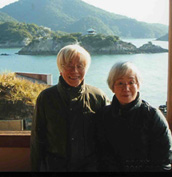A Large Generation Gap Must be Taken into Account in the Consideration of the Effects of Music Therapy in Japan
DOI:
https://doi.org/10.15845/voices.v11i3.623Keywords:
japan music therapy emotion elderlyAbstract
We studied the effects of music upon human emotion with ESA-16, a special computer soft ware program for the analysis of human emotion from EEG. Subjects were 6 old and 8 healthy adult person. Four songs were selected as test music, all of which are very familiar to the old. Their titles were "Furusato", "Akogareno Hawaii-kouro", "Saitarou-busi" and "Kagewositaite". They were chosen because we used them very often in our recipe (repertoire) of music therapy for old person. ESA-16 enabled us to analyze EEG into four components of emotion; Anger/Stress, Joy, Sadness and Relaxation in a pseudo-real time manner. The experiments with ESA-16 revealed that the old person showed a significant decrease in Anger/Stress and an increase in Joy during listening to "Furusato", and a decrease in Sadness and an increase in Relaxation while listening to "Saitarou-busi" with significance. On the other hand, no significant emotional changes were observed in the adult subjects while listening to all four music. For the explanation of these facts, we offered a proposition that the difference in emotional changes observed while listening to four test songs was produced by a large generation gap lying between the old and the adult. This generation gap was produced by the drastic cultural and educational changes since the occupation by the USA, after the unconditional surrender of Japan to the Allied Forces in 1945. This year marks the critical demarcation in producing the large generation gap in Japan. From this time on, the adult are educated under the new democratic system, while the old remained completely in the past as the remains of absolutism and feudalism.
Downloads
Published
2011-11-02
How to Cite
Matunami, K. (2011). A Large Generation Gap Must be Taken into Account in the Consideration of the Effects of Music Therapy in Japan. Voices: A World Forum for Music Therapy, 11(3). https://doi.org/10.15845/voices.v11i3.623
Issue
Section
Evaluating Quality in Research
License
Articles published prior to 2019 are subject to the following license, see: https://voices.no/index.php/voices/copyright

